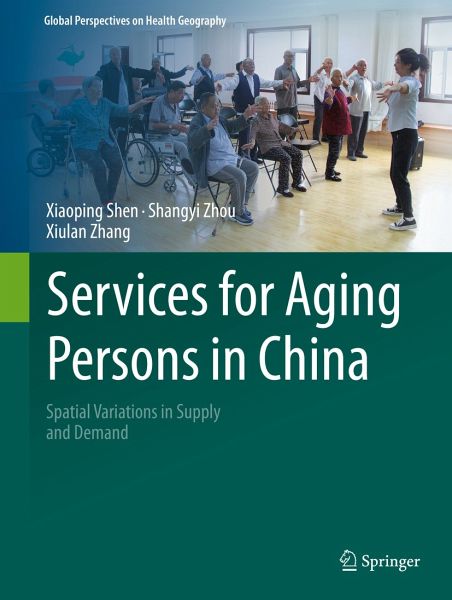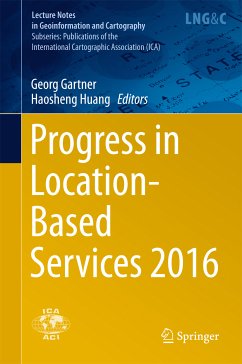
Services for Aging Persons in China (eBook, PDF)
Spatial Variations in Supply and Demand
Versandkostenfrei!
Sofort per Download lieferbar
Statt: 139,09 €**
96,95 €
inkl. MwSt.
**Preis der gedruckten Ausgabe (Gebundenes Buch)
Alle Infos zum eBook verschenkenWeitere Ausgaben:

PAYBACK Punkte
48 °P sammeln!
This volume draws upon one of the first comprehensive studies on the regional variations of services for aging persons in China to provide an empirical and theoretical understanding of the impact of China's rapidly growing aging population on the country's socioeconomic, cultural, and political systems. In three parts, the manuscript combines case-oriented comparative methods with variable-oriented statistical and GIS analyses to examine the spatial patterns and relationships between supply and demand of affordable and accessible services for aging persons in China. Part one gives a historical...
This volume draws upon one of the first comprehensive studies on the regional variations of services for aging persons in China to provide an empirical and theoretical understanding of the impact of China's rapidly growing aging population on the country's socioeconomic, cultural, and political systems. In three parts, the manuscript combines case-oriented comparative methods with variable-oriented statistical and GIS analyses to examine the spatial patterns and relationships between supply and demand of affordable and accessible services for aging persons in China.
Part one gives a historical review of population aging in China, including the development of services for aging persons and government policies and programs geared towards elders. Part two provides an analysis of spatial variations of supply and demand for services including food, housing, health, and community services for aging persons. Part three uses case studies to analyse the regional and local dimensions ofelderly services. Suggestions are made for future planning, development, and policies. This book will appeal to policy makers, city planners, service providing businesses, and advanced undergraduate and graduate students studying economic geography, planning, and regional development.
Part one gives a historical review of population aging in China, including the development of services for aging persons and government policies and programs geared towards elders. Part two provides an analysis of spatial variations of supply and demand for services including food, housing, health, and community services for aging persons. Part three uses case studies to analyse the regional and local dimensions ofelderly services. Suggestions are made for future planning, development, and policies. This book will appeal to policy makers, city planners, service providing businesses, and advanced undergraduate and graduate students studying economic geography, planning, and regional development.
Dieser Download kann aus rechtlichen Gründen nur mit Rechnungsadresse in A, B, BG, CY, CZ, D, DK, EW, E, FIN, F, GR, HR, H, IRL, I, LT, L, LR, M, NL, PL, P, R, S, SLO, SK ausgeliefert werden.












